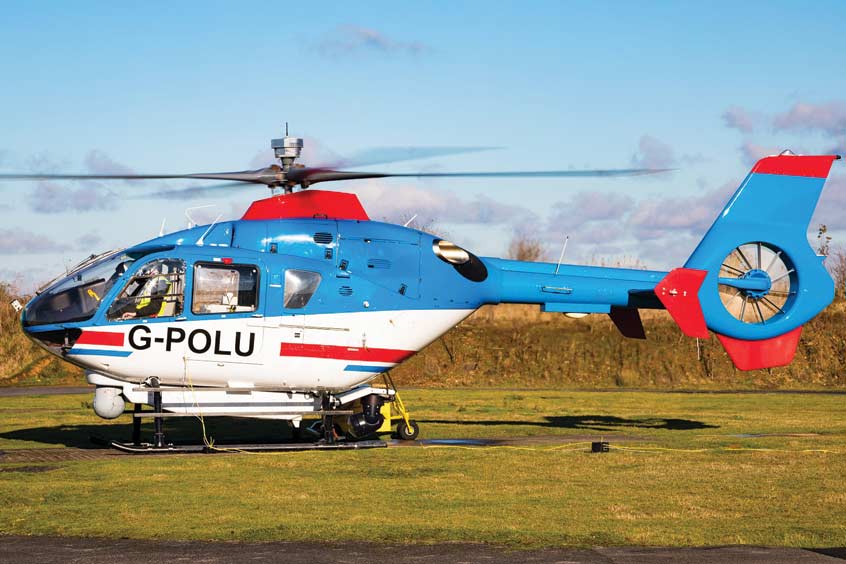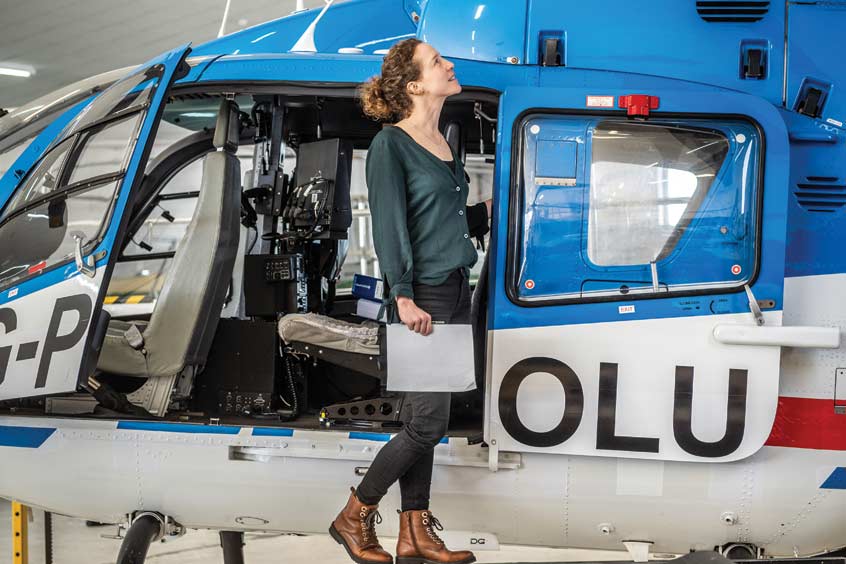 The monthly news publication for aviation professionals.
The monthly news publication for aviation professionals.



Airbus Helicopters in the UK, in conjunction with Cranfield University, is looking to follow on from a four-year research project that has shown strong potential for measuring deformation of helicopter rotor blades in the rotating frame.
The BladeSense project, a two million pound programme supported with a one million pound grant from Innovate UK, via the Aerospace Technology Institute (ATI), examined the use of novel optical fibre sensors, measuring strain and shape, to monitor blade behaviour in real-time.
It holds out the prospect of substantially saving on lifecycle costs through continuous in-flight data collection. This will not only open up new pathways for rotor blade performance monitoring, but also provide blade usage data that is currently impossible to obtain in operational environments.
In the course of the project, the rotor blades of an Airbus H135 helicopter were fitted with fibre optic instrumentation. Data was successfully transferred to a remote ground station through a wi-fi link from specially designed instrumentation mounted on top of the rotor hub, during some four hours of ground running with the five metre rotors operating at up to 400 rpm.
The research was a collaboration between Airbus Helicopters UK and Cranfield University's Dynamics, Simulation and Control Group and Centre for Engineering Photonics. Simone Weber, technology integration manager at Airbus Helicopters in the UK was embedded at Cranfield University. Helitune of Torrington, UK provided the onboard vehicle monitoring unit and fluid engineering specialists BHR Group (UK) of Cranfield supplied the mathematical model for predicting the mechanical loads.
Future test scenarios under examination envisage flight-testing of the system and investigation of the exploitation of the concept in the helicopter design phase.
Head of design and customisation at Airbus Helicopters in the UK Richard Atack says: “We've made real progress in an advanced field of work with the potential to bring important benefits in terms of performance monitoring and environmental impact. And we've done that by capitalising on people, skills and technical know-how right here in the UK at Airbus and with our partners. Now we are very interested to see what we can do next to advance our capabilities even further.”
Dr Mudassir Lone, senior lecturer in flight dynamics in the Dynamics, Simulation and Control Group at Cranfield University adds: “The success of the final series of tests reflects the ability of the UK R&D environment to deliver unique and industrially relevant research, due to the close collaboration in both the available expertise and facilities.”
Professor Ralph Tatam, head of the Centre for Engineering Photonics at Cranfield University explains: “This was a fantastic team effort from all the partners to demonstrate that the novel interferometric fibre optic shape measurement, pioneered at Cranfield, works in this challenging environment. This opens the way for this technology to be applied across a range of sectors including aerospace, energy, transport and healthcare.”
